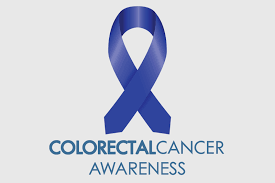During the last week of National Colorectal Cancer Awareness Month, the annual GI Nurses and Associates Week highlights prevention and treatment of colorectal cancer, and the care GI nurses provide to all their patients.
Sponsored by the Society of Gastroenterology Nurses and Associates, this year’s theme is about nurses sharing their own stories about working as a GI nurse. This side of the awareness month will give GI nurses a chance to connect with others through sharing how professional membership, knowledge, collaboration, education, and inspiration made their careers in GI nursing a good match for them.
Although GI nurses treat patients with a variety of conditions from Chron’s disease to abdominal injury to diverticulitis, they are also on the front lines of a disease that is the second-leading cause of cancer deaths in the United States, according to the Centers for Disease Control and Prevention (CDC). In the midst of celebrating the nurses who give high-quality and dedicated care to their GI patients, the week closes out a month that calls attention to colorectal cancer awareness.
GI nurses are always on high alert for the prevention and treatment of colorectal cancer. They are also often the professionals who help patients learn to cope with or manage a diagnosis of cancer. They advise them of treatment plans, potential surgical outcomes, and the emotional turmoil that can come from hearing you have cancer.
This is also a great opportunity to remember that lots of people don’t think of their own risk for colorectal cancer, even nurses. While educating your patients on some of the prevention advice and the screenings available, make sure to take the time to take your own advice.
Some of the latest pointers from the CDC are helpful to discuss with your own patients, your family members, and to remind yourself how important it is to make time for your own health.
Screening Is Essential
The best current tool for colorectal cancer detection is the often-dreaded colonoscopy screening. While it’s a process to go thorough, it’s also the gold standard for catching colorectal cancer in its earliest and most treatable stages. Screenings should begin at 50, and earlier if you have other risk factors like family history or a personal history of things like inflammatory bowel disease.
As a nurse, you can help patients by letting them know what will happen during the actual procedure. Even more valuable is giving tips that will make the preparation easier. If it’s appropriate to their situation, many people can begin eliminating high-fiber foods and increasing their liquids a few days before the preparation begins. This will make emptying everything out the GI system easier.
Screenings can help find precancerous polyps that can be removed before they become cancer. A little inconvenience from a screening can actually be life saving.
Prevention Can Help
As with any cancer, you can’t always prevent the disease. Colorectal cancer often strikes people who have no family history, no personal risk factors, and whose lifestyle and habits would make them seem at low risk. However, there are always things people can do to put the odds in their favor.
Screening, as mentioned, is essential. Otherwise, healthy lifestyle choices can make a big difference. The general advice about staying active, eating a healthy diet, and not drinking alcohol or smoking is repeated so frequently because it’s so helpful.
Watch for Troubling Symptoms
Colorectal cancer often causes no symptoms in the early stages. The CDC and the American Cancer Society offer a few red flags to watch for.
- Bleeding from the rectum or blood in the stool (sometimes people dismiss this as hemorrhoids)
- Unexplained weight loss
- Persistent pain in the stomach, cramps, achiness that doesn’t go away
- Noticeable changes in your bowel habits that persist after a few days
- General weakness and fatigue
There is also hope. Colorectal cancer is terrifying, but it is often treatable, especially when it’s caught early. The more people talk about it and learn the importance of screening, the more cases can be prevented.
- Is the FNP Program Right for You? - April 24, 2024
- WOC Nurses Week Highlights Specialty - April 16, 2024
- Honoring Radiology Nurses Day on April 12 - April 12, 2024



